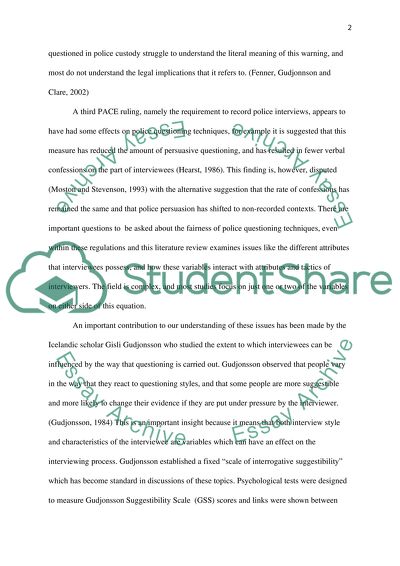Cite this document
(“An investigation into interrogative suggestibility Literature review”, n.d.)
Retrieved from https://studentshare.org/psychology/1409306-an-investigation-into-interrogative-suggestibility
Retrieved from https://studentshare.org/psychology/1409306-an-investigation-into-interrogative-suggestibility
(An Investigation into Interrogative Suggestibility Literature Review)
https://studentshare.org/psychology/1409306-an-investigation-into-interrogative-suggestibility.
https://studentshare.org/psychology/1409306-an-investigation-into-interrogative-suggestibility.
“An Investigation into Interrogative Suggestibility Literature Review”, n.d. https://studentshare.org/psychology/1409306-an-investigation-into-interrogative-suggestibility.


